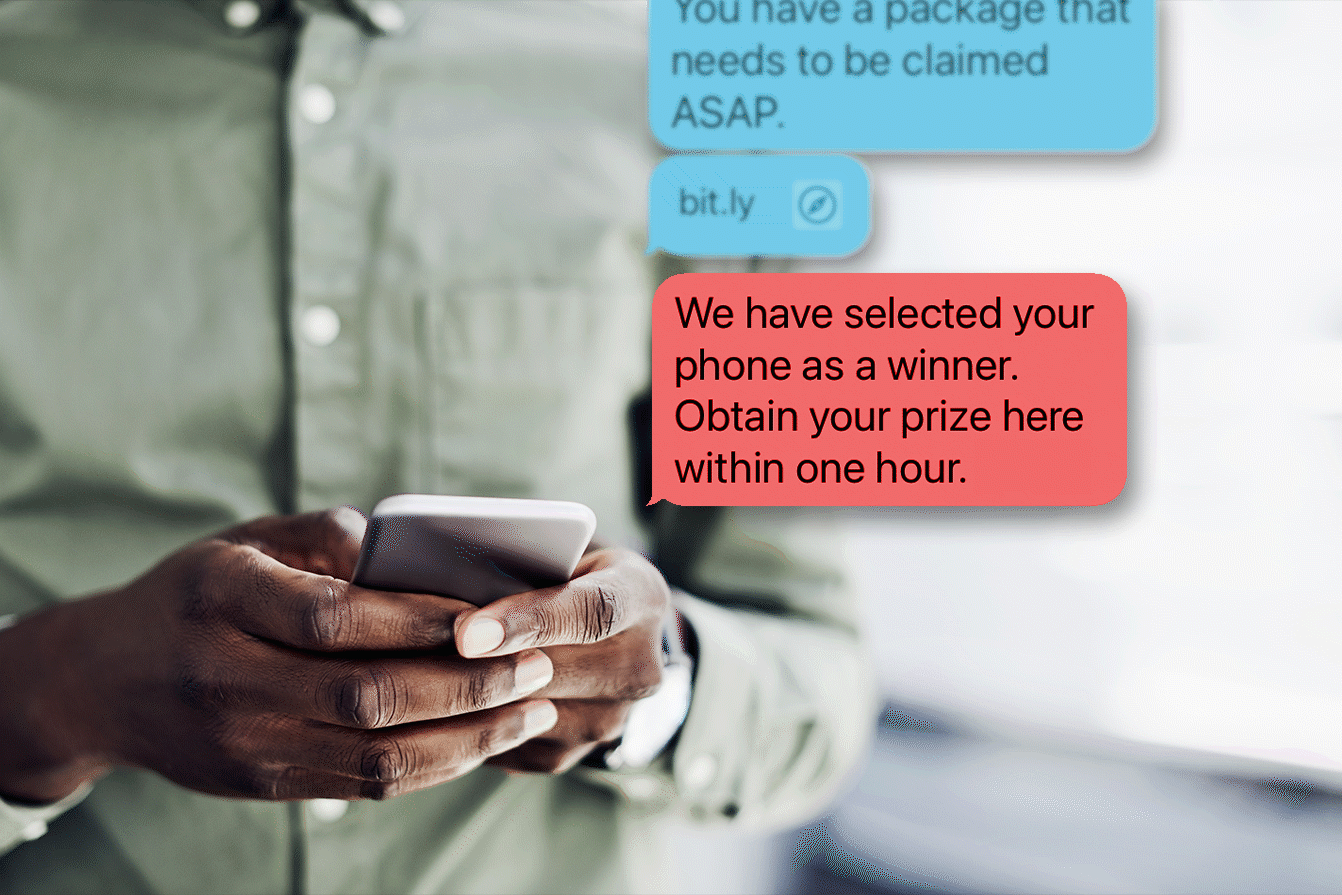Wednesday, July 5, 2023
Blog topics:
 Welcome to National Cell Phone Courtesy Month! As we celebrate the benefits and convenience of mobile technology, it's crucial to also address the challenges and risks that come with it. In this digital age, cyber scams have become increasingly prevalent, targeting unsuspecting individuals through their cell phones, smart phones and mobile devices. As we highlight cell phone courtesy, let's also explore the importance of staying vigilant and safeguarding ourselves against cyber scams, defining some of the cyber jargon you’ll hear, and learning exactly what these different attacks mean.
Welcome to National Cell Phone Courtesy Month! As we celebrate the benefits and convenience of mobile technology, it's crucial to also address the challenges and risks that come with it. In this digital age, cyber scams have become increasingly prevalent, targeting unsuspecting individuals through their cell phones, smart phones and mobile devices. As we highlight cell phone courtesy, let's also explore the importance of staying vigilant and safeguarding ourselves against cyber scams, defining some of the cyber jargon you’ll hear, and learning exactly what these different attacks mean.
Phishing Attacks
Phishing has been around since the early e-mail days, as far back as the mid-1990’s. Today, phishing attacks have become among the most dangerous forms of what we consider to be a cyberthreat. In fact, 36 percent of all security breaches begin with a phishing attack. Mobile phone users are most often at risk to these attacks because of the ease of access that comes with using these types of devices. Scammers send text messages or emails that appear to be legitimate, impersonating real people and organizations (or both) and they’re requesting personal information. This can include everything from an email (or text message) letting you know that you have a package that’s being delivered (when you haven’t ordered anything) to something, such as an email with a confirmation from PayPal (involving a transaction you didn’t make). All of it looks to be surprisingly real. However, when you click on the link and/or enter your information, instead, your money and your personal information is headed into the hands of a cybercriminal as part of a scam.
To protect yourself, here’s some helpful tips to keep in mind, including:
- Being cautious of unsolicited messages. Be skeptical of any message asking for personal information or urging you to click on a suspicious link.
- Verifying the sender's legitimacy. It’s always a good idea to contact the organization directly using their official website or contact information to confirm the authenticity of the message.
- Installing anti-phishing software. There are apps for your phone or mobile device that can help protect you from phishing attacks, easily found by searching ‘anti phishing’ on the app store.
Fake Apps and Malware
Fake apps and malware pose a significant threat to mobile phone users. Cybercriminals can create their own apps that look very similar to the real deal. To avoid falling prey to a hoax:
- Stick to legitimate app stores: Download apps only from trusted sources, such as Google Play Store or Apple App Store.
- Read reviews and check app permissions. Before downloading an app, read user reviews and verify the permissions it requires.
- Install reliable mobile security software. Be sure to invest in a reputable antivirus or security app (that’s within your budget) that scans for and prevents the installation of malicious apps.
Vishing
Vishing, or voice phishing, involves scammers making phone calls impersonating representatives from banks, government agencies, or other organizations (include non-profits) to extract personal information. Protect yourself from vishing attacks with these precautions:
- Be cautious of unsolicited calls: Don't provide personal information over the phone unless you initiated the call or can verify the legitimacy of the caller.
- Verify caller identity: Ask for the name, department, and contact number of the caller. Then independently contact the organization to verify their authenticity.
- Register your number on the National Do Not Call Registry: This can help reduce the number of unwanted telemarketing calls.
- Remember, a verified organization, such as a bank or a credit union, will never ask you to read out a credit card number, social security number, or other sensitive information over the phone.
As we embrace National Cell Phone Courtesy Month, let's prioritize our digital well-being and protect ourselves from cyber scams that target mobile phone users. By being vigilant, following best practices, and staying informed about the latest scams, we can minimize the risks associated with mobile technology.
Together, let's make cell phone courtesy about more than just politeness; let's make it about security and ensuring our digital experiences are safe and enjoyable. Stay cautious, stay informed, and enjoy the benefits of your cell phone responsibly!
Happy National Cell Phone Courtesy Month!

